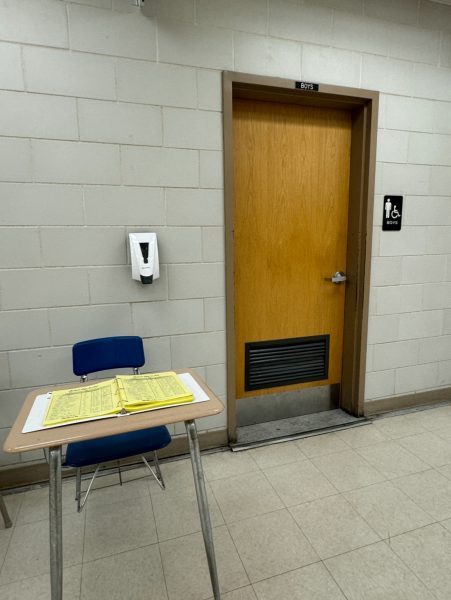Stop the cheating: Presenting a new Academic Integrity policy
January 3, 2023
An updated Academic Integrity Protocol was rolled out to students in the beginning of the 2022-2023 academic year.
‘Academic integrity’ is not a new concept to students, but it is now being reinstated and enforced.
“Academic integrity is really important in a school because everything we do prepares students for the next level, whether that be entering the workforce, entering college. Your integrity is your reputation and defines who you are. Academic integrity is making sure your work is authentic, making sure your ideas are your own,” said assistant principal Eric Biagi.
The new protocol was completely updated from the prior academic integrity protocols, according to Biagi.
“We had a committee of teachers, all disciplines represented, [including] administrators. We really looked at a […] of different school’s protocols, we looked at our own protocols in the district, we looked at the best practices and research, and we really built from the ground up a new protocol that was more in line with our vision of what our school is, versus a document that had really become out of date,” said Biagi.
“Academic Integrity day” was held on October 6 where teachers addressed the new policies and how they pertain to their courses.
“[Academic Integrity day] was very helpful because I feel that there was a gray area on what was considered academic integrity, in terms of online learning, and teachers were able to clear up any confusion,” said junior Emily D.,via text message.
With changes in digital learning through the years, online sourcing has become critical in this new academic environment.
“From our perspectives because we’re librarians and we work with research, we know that there is a tradition in scholarly and academic writing to cite and list sources and to incorporate other people’s work into your own and to evidence and support for your ideas,” said head librarian Ann Libbey.
Citing sources is a vital element of researching for assignments in order to maintain academic integrity.
“It is important to make it a part of your process [citing sources]. A lot of people think ‘Oh, it’s at the end, I just have to write my bibliography and copy and paste.’ But it is more of a process, so as you’re doing your research, as you’re gathering your resources it is really important to keep track of them so that you don’t get to the end of your paper and [you think], ‘where did I get this from? Who said that?’ It just makes it easier to track,” said librarian Kim Branzino.
Different infractions of academic dishonesty have varying degrees of consequences. In accordance with the degree of infraction, there are many possible resolutions.
“Appealing is something we found when talking to other schools around the state, the appeal was something that a few schools are doing and we really like the idea because sometimes there is just a misunderstanding and we wanted that to be a process.[…] that’ll be for really big instances of academic dishonesty where if a student feels it hasn’t been fairly addressed they have an opportunity to go a group, that’ll be an unbiased group, they are not the teacher, we really want to preserve that relationship with the teacher and the student and the student will meet with another staff member that’s not connected to the situation, they’ll have their counselor there if they would like and it is really an opportunity to hear from the student directly why they feel that the academic integrity infraction didn’t happen,” said Biagi
The new appeal process also gives students a voice.
“It allows for us as a school to build for that student advocacy, it allows for students to feel that their voice is being heard and valued which is the most important piece and allows us to have a fair process,” said Biagi. 🔳










